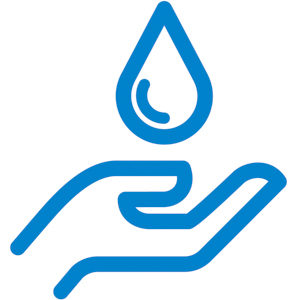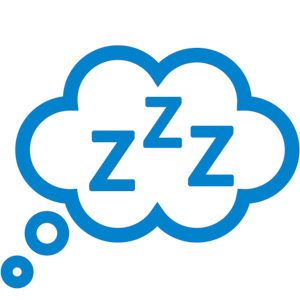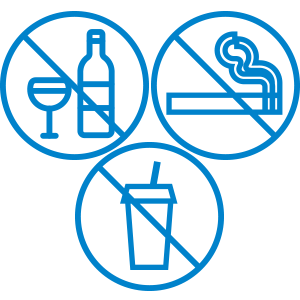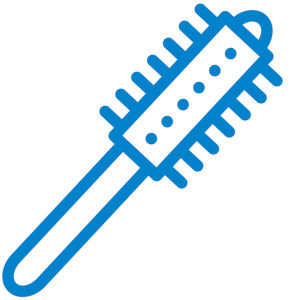Head and Neck Cancer Treatment Side Effects
Managing side effects of radiation therapy
You will be receiving radiation therapy treatments to the head and neck area. Some of the possible side effects that you may experience during treatment can include the following: skin irritation, fatigue, a sore throat, hoarseness, mouth changes, decrease in saliva, and changes in taste and hair loss. Measures that you can take to minimize these side effects are listed below.
-

Skin Care
It is okay to bathe or shower daily with a mild soap. Wash the treatment area gently. Do not scrub the skin. If you have ink marks on your skin, please do not wash them off. Gently pat the skin dry.
During the course of your radiation therapy treatments, we ask that you put nothing on the skin in the treatment area except for the products recommended by the physician or nurse. Use moisturizers for dryness and over-the-counter hydrocortisone cream for itchiness. Apply products twice daily or as needed. We do not want the skin “greasy” when you come in for treatment.
Avoid the use of hot or cold in the treatment area. This includes the use of heating pads, hot packs, hot water bottles, ice packs, and ice bags. It is okay to use an electric blanket. Avoid the use of tape or Band-Aids in the treatment area.
-

Sun Exposure
During treatment, avoid exposing the skin in the treatment area to direct sunlight or tanning beds. If you plan on being in the sun for an extended period, cover the skin with clothing or broad-spectrum sunscreen with an SPF of 30 or higher. The treatment area will always be more sensitive to the sun and tanning beds.
-

Fatigue
Loss of energy is a common side effect of radiation therapy. Endurance, stamina, concentration, and motivation may all decrease as a result of fatigue. Conserve your energy and rest when you need to. Eat a well-balanced diet and stay well-hydrated by drinking plenty of water. Exercise such as walking or yoga can improve your energy. Respect your body’s limitations – if you hurt while exercising, stop.
-

Esophagitis
Toward the end of therapy, you may notice some irritation of the esophagus (esophagitis). You may notice a sore throat, a lump in the throat, difficulty swallowing or a burning sensation (like heartburn). Please let your doctor or nurse know if you experience any of these symptoms. They can recommend the use of certain products to relieve these feelings.
It is best to avoid these situations:
- It is very important that you avoid alcohol (beer, wine, mixed drinks) and products that contain alcohol (cough syrups, Nyquil).
- Do not use any tobacco (cigarettes, cigars, pipe or chewing tobacco) during treatment. Breathing air that has tobacco smoke or pollutants will irritate your lungs and throat.
- Carbonated beverages, spicy foods, crunchy foods, extremely hot or extremely cold foods, and acidic foods (tomato sauce, citrus fruits, coffee) should be avoided as well.
-

Hoarseness
You may notice throat changes during the treatments. Hoarseness may increase toward the end of treatment. As the voice becomes irritated, reduce the amount of speaking, and talk softly. These symptoms should improve 4-6 weeks after treatments are completed.
-

Hair Loss
You may experience some hair loss, which may be temporary or permanent. The hair loss will only occur in the area where you are being treated. The hair loss usually happens towards the middle to end of treatment. Hair can take 4-6 months to grow back, and it may be thinner when it does return.
-

Nutrition
During your course of therapy, it is very important to maintain your weight. We suggest a diet high in protein, calories, and healthy fats to aid the body in recovery and restore strength. Your nurse will be checking your weight frequently. Even if you are overweight, we recommend maintaining your weight and preventing weight loss during treatment. We can suggest food supplements if weight loss occurs. It is not unusual to notice a decrease in appetite during radiation therapy. You may need to make a conscious effort to maintain adequate calorie intake. Frequent, small meals or snacks (every 2-3 hours) may be better tolerated than three large meals a day. Meeting with a dietician is helpful. If you need a referral, let your nurse know.
-

Duration
Side effects may worsen the final week of treatment and the week after radiation treatments are completed. Most of these side effects gradually subside within 2-8 weeks after treatment. Please call our office if you have any questions at any time during or after your radiation treatments.
For questions to ask your provider, see our FAQ page.